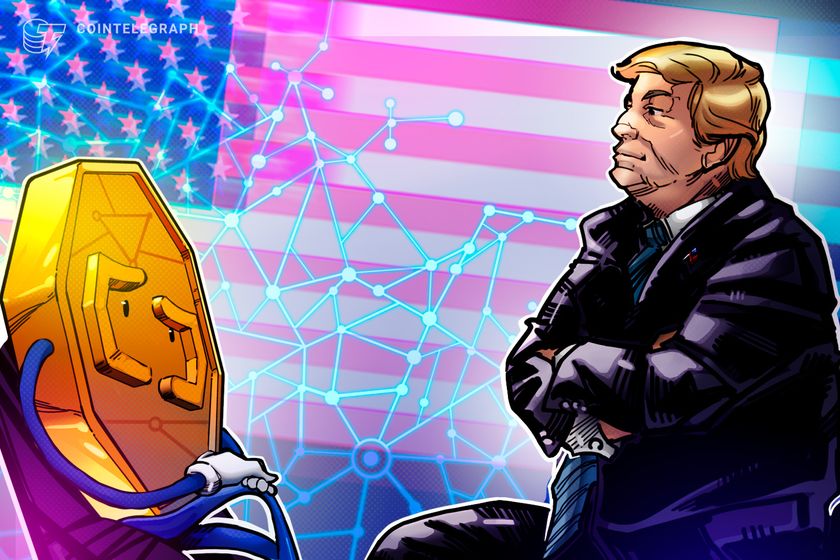
Opinion by: Genny Ngai and Will Roth of Morrison Cohen LLP
Since taking workplace, the Trump administration has designated a number of drug and violent cartels as International Terrorist Organizations (FTOs) and Specifically Designated World Terrorists (SDGTs). US President Donald Trump has additionally known as for the “whole elimination” of those cartels and the like. These govt directives aren’t good developments for the cryptocurrency trade. On their face, these mandates seem centered solely on legal cartels. Make no mistake: These govt actions will trigger unexpected collateral injury to the digital asset group. Crypto actors, together with software program builders and buyers, might very nicely get caught within the crosshairs of aggressive anti-terrorism prosecutions and follow-on civil lawsuits.
Elevated menace of legal anti-terrorism investigations
The largest menace stemming from Trump’s govt order on cartels is the Division of Justice (DOJ). Virtually instantly after President Trump known as for the designation of cartels as terrorists, the DOJ issued a memo directing federal prosecutors to make use of “essentially the most severe and broad fees,” together with anti-terrorism fees, towards cartels and transnational legal organizations.
This can be a new and severe improvement for prosecutors. Now that cartels are designated as terrorist organizations, prosecutors can transcend the normal drug and money-laundering statutes and depend on legal anti-terrorism statutes like 18 U.S.C. § 2339B — the material-support statute — to analyze cartels and anybody who they consider “knowingly supplies materials assist or sources” to the designated cartels.
Why ought to the crypto trade be involved with these developments? As a result of “materials assist or sources” isn’t just restricted to offering bodily weapons to terrorists. “Materials assist or sources” is broadly outlined as “any property, tangible or intangible, or service.” Anybody who knowingly supplies something of worth to a chosen cartel may now conceivably violate § 2339B.
Despite the fact that cryptocurrency platforms aren’t monetary establishments and by no means take custody of customers’ property, aggressive prosecutors might take the hardline view that software program builders who design crypto platforms — and those that fund these protocols — are offering “materials assist or sources” to terrorists and launch dangerous investigations towards them.
This isn’t some summary chance. The federal government has already demonstrated a willingness to take this aggressive place towards the crypto trade. For instance, the DOJ indicted the developers of the blockchain-based software protocol Tornado Cash on cash laundering and sanction fees and accused them of working a large-scale cash laundering operation that laundered at the least $1 billion in legal proceeds for cybercriminals, together with a sanctioned North Korean hacking group.
Current: Crypto crime in 2024 likely exceeded $51B, far higher than reported: Chainalysis
Furthermore, the federal government already believes that cartels use cryptocurrency to launder drug proceeds and has introduced quite a few instances charging people for laundering drug proceeds by means of cryptocurrency on behalf of Mexican and Colombian drug cartels. TRM Labs, a blockchain intelligence firm that helps detect crypto crime, has even recognized how the Sinaloa drug cartel — a just lately designated FTO/SDGT — has used cryptocurrency platforms to launder drug proceeds.
The digital asset group faces actual dangers right here. Placing apart the reputational injury and prices that come from defending legal anti-terrorism investigations, violations of § 2339B impose a statutory most time period of imprisonment of 20 years (or life if a loss of life occurred) and financial penalties. Anti-terrorism statutes even have extraterritorial attain, so crypto corporations outdoors the US aren’t proof against investigation or prosecution.
Civil anti-terrorism lawsuits will escalate
The designation of cartels as FTOs/SDGTs will even enhance the speed at which crypto corporations might be sued underneath the Anti-Terrorism Act (ATA). Below the ATA, personal residents, or their representatives, can sue terrorists for his or her accidents, and anybody “who aids and abets, by knowingly offering substantial help, or who conspires with the one who dedicated such an act of worldwide terrorism.”
Aggressive plaintiffs’ counsel have already relied on the ATA to sue cryptocurrency corporations in court docket. After Binance and its founder pled responsible to legal fees in late 2023, US victims of the Oct. 7 Hamas assault in Israel sued Binance and its founder under the ATA, alleging that the defendants knowingly offered a “mechanism for Hamas and different terrorist teams to boost funds and transact illicit enterprise in assist of terrorist actions” and that Binance processed practically $60 million in crypto transactions for these terrorists. The defendants filed a movement to dismiss the criticism, which was granted partially and denied partially. For now, the district court docket permits the Ranaan plaintiffs to proceed towards Binance with their aiding-and-abetting idea. Crypto corporations ought to count on to see extra ATA lawsuits now that drug cartels are on the official terrorist listing.
Vigilance is vital
Crypto corporations might imagine that Trump’s battle towards cartels has nothing to do with them. The fact is, nonetheless, that the consequences of this battle might be widespread, and crypto corporations could also be unwittingly drawn into the crossfire. Now just isn’t the time for the digital asset group to loosen up inner compliance measures. With anti-terrorism statutes in play, crypto corporations should make sure that transactions with all FTOs/SDGTs are recognized and blocked, monitor for brand spanking new terrorist designations, and perceive areas of latest geographical dangers.
Opinion by: Genny Ngai and Will Roth of Morrison Cohen LLP.
This text is for normal info functions and isn’t supposed to be and shouldn’t be taken as authorized or funding recommendation. The views, ideas, and opinions expressed listed here are the writer’s alone and don’t essentially mirror or signify the views and opinions of Cointelegraph.






